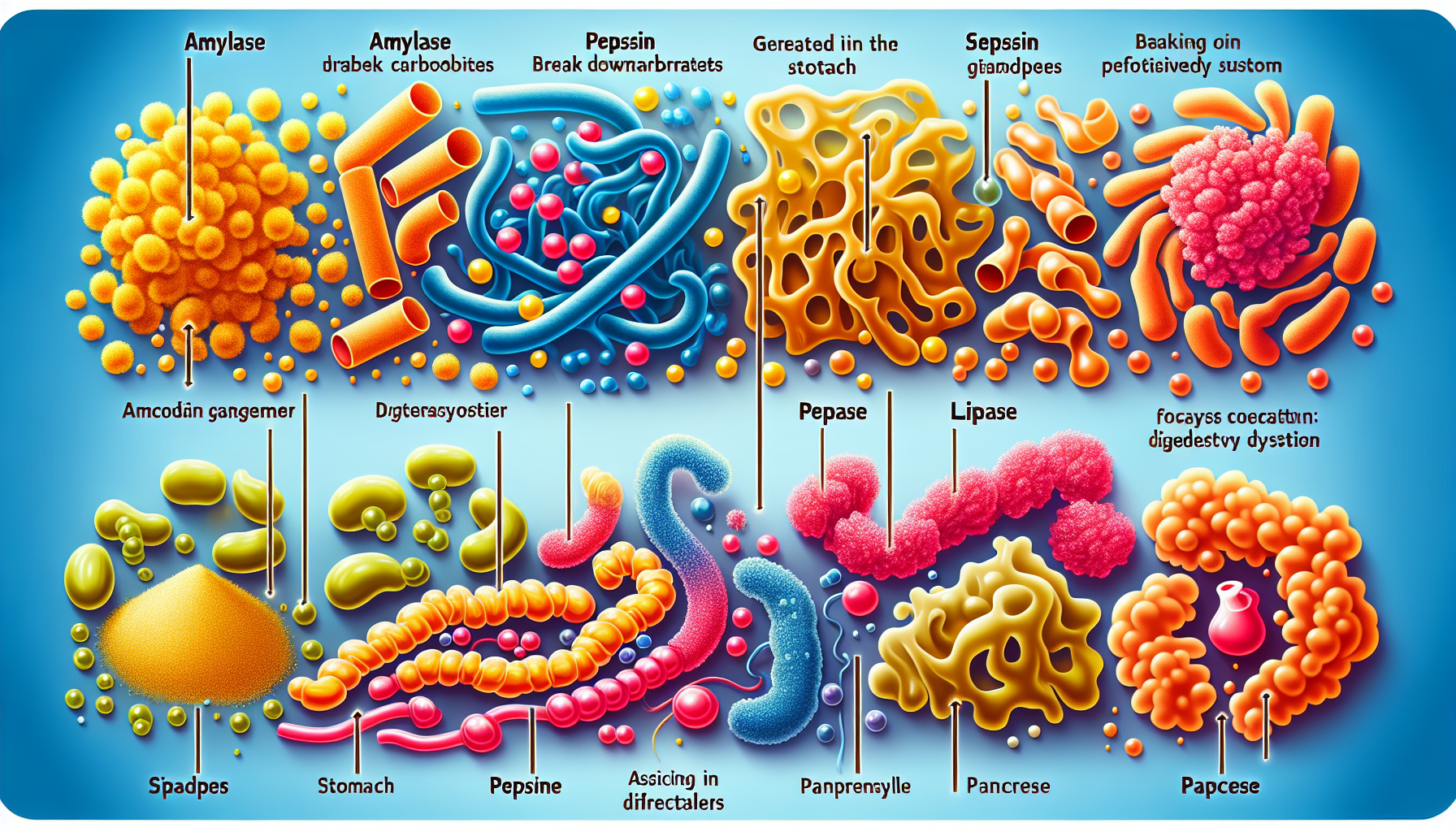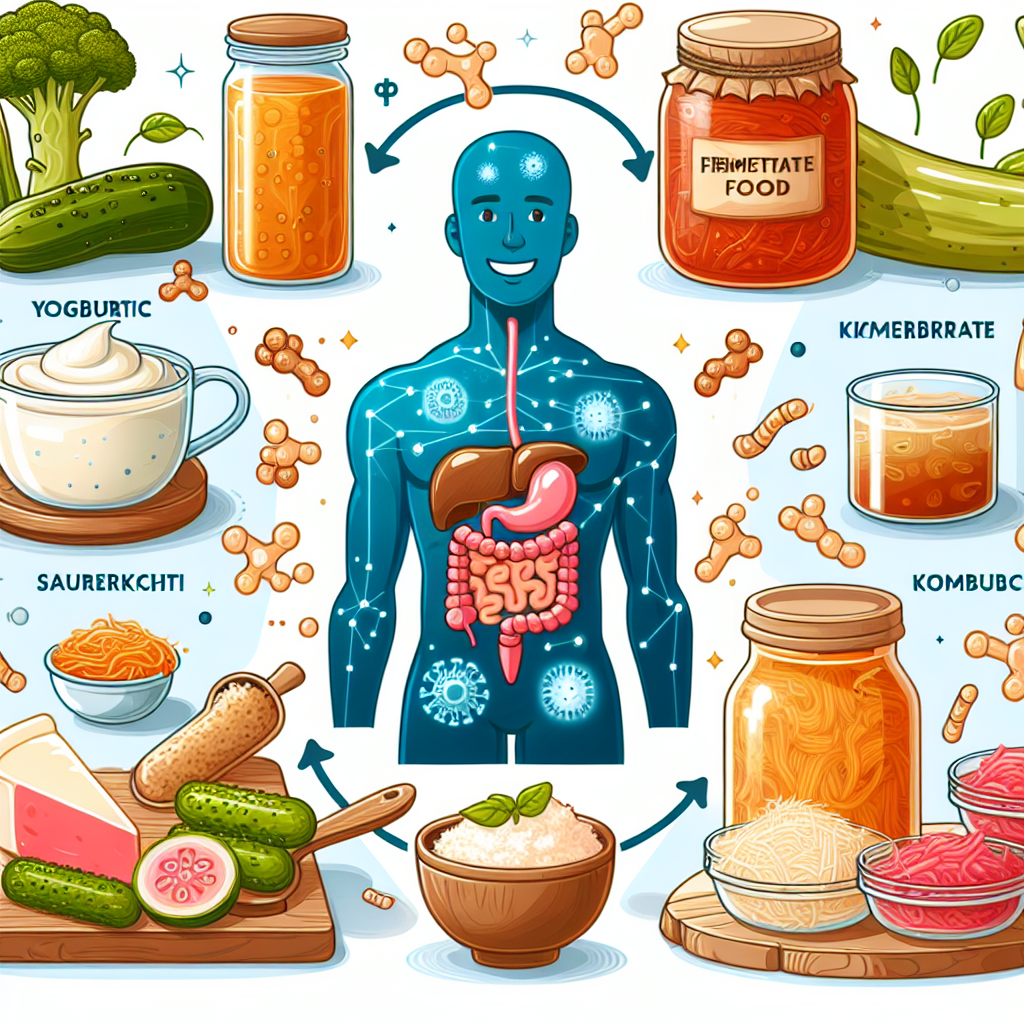Enzymes are the unsung heroes of the digestive system, tirelessly working behind the scenes to ensure that the food we consume is broken down into nutrients our bodies can use. The diversity of these biological catalysts is crucial for the optimal functioning of our digestive health, impacting everything from nutrient absorption to gut flora balance. In this comprehensive exploration, we delve into the pivotal role enzymes play in maintaining digestive wellness and how enzyme diversity can be nurtured through lifestyle and dietary choices.
Understanding Digestive Enzymes
Digestive enzymes are proteins that accelerate chemical reactions within the body, specifically those involved in breaking down complex food molecules into simpler, absorbable components. They are secreted by various organs, including the salivary glands, stomach, pancreas, and small intestine. Each enzyme has a specific task, targeting particular types of food compounds such as carbohydrates, proteins, and fats.
The Role of Enzyme Diversity
A diverse array of digestive enzymes is essential for the complete digestion of the varied diet humans typically consume. Carbohydrases like amylase break down carbohydrates into sugars, proteases such as pepsin cleave proteins into amino acids, and lipases aid in fat digestion by dismantling triglycerides into fatty acids and glycerol. Without a wide spectrum of these enzymes, the body might struggle to process certain foods, potentially leading to malnutrition and digestive discomfort.
Enzymes and Gut Health
Enzyme diversity also plays a significant part in maintaining a healthy gut microbiome, the community of beneficial bacteria residing in our intestines. For instance, a lack of necessary enzymes can result in undigested food particles reaching the colon, which may disrupt the delicate balance of gut bacteria and contribute to issues like bloating and gas.
To fully appreciate the importance of a well-functioning digestive system, it’s helpful to explore the broader context of Digestive Health, which covers a spectrum of factors influencing gastrointestinal well-being.
Boosting Enzyme Diversity
There are several ways to promote the diversity of digestive enzymes in the body:
1. Balanced Diet
Consuming a varied diet rich in fruits, vegetables, whole grains, lean proteins, and healthy fats ensures exposure to a broad range of natural enzymes. Nutritional Tips for Restoring Gut Health After Antibiotic Therapy can offer guidance on foods that support enzymatic activity and gut health.
2. Probiotic and Fermented Foods
Fermented foods such as yogurt, kefir, sauerkraut, and kombucha are natural sources of beneficial bacteria and enzymes. Probiotics, either from foods or supplements, can help maintain a healthy gut environment, fostering the production of natural enzymes. The Advancements in Probiotic Supplementation for Gut Health Repair article provides insights into how these supplements can bolster digestive health.
3. Proper Hydration
Adequate water intake is crucial for digestive health. Water helps enzymes function properly and facilitates the smooth movement of food through the digestive tract.
4. Avoiding Enzyme Inhibitors
Certain foods and chemicals can inhibit enzymatic activity. Avoiding excessive consumption of alcohol, processed foods, and certain medications can help maintain enzyme levels.
5. Enzyme Supplements
For those with specific enzyme deficiencies or digestive conditions, over-the-counter enzyme supplements may be beneficial. It’s important to consult with a healthcare provider before starting any supplementation.
The Impact of Lifestyle on Enzyme Production
Lifestyle factors such as stress, lack of sleep, and physical inactivity can negatively impact enzyme production. Managing stress through mindfulness, ensuring adequate rest, and engaging in regular physical activity can all support the body’s ability to produce a diverse array of digestive enzymes.
External Resources Supporting the Importance of Enzyme Diversity
To further understand the critical role enzymes play in digestion and overall health, consider exploring these external resources:
- The Enzyme Nutrition Society provides detailed information on the science of enzymes and their impact on health.
- Gut Microbiome Journal offers peer-reviewed research articles on the gut microbiome’s influence on health, including enzymatic activity.
- Nutrition Digest features articles on diet and nutrition, highlighting the importance of enzymes in digestive health.
Conclusion
Enzyme diversity is a cornerstone of digestive health, playing an indispensable role in nutrient absorption and gut microbiota balance. By adopting a balanced diet, incorporating probiotic-rich foods, staying hydrated, avoiding enzyme inhibitors, considering enzyme supplements, and managing lifestyle factors, individuals can support their digestive enzyme diversity. As research continues to uncover the extensive benefits of enzymes, it becomes increasingly clear that these powerful proteins are vital to our overall well-being.



